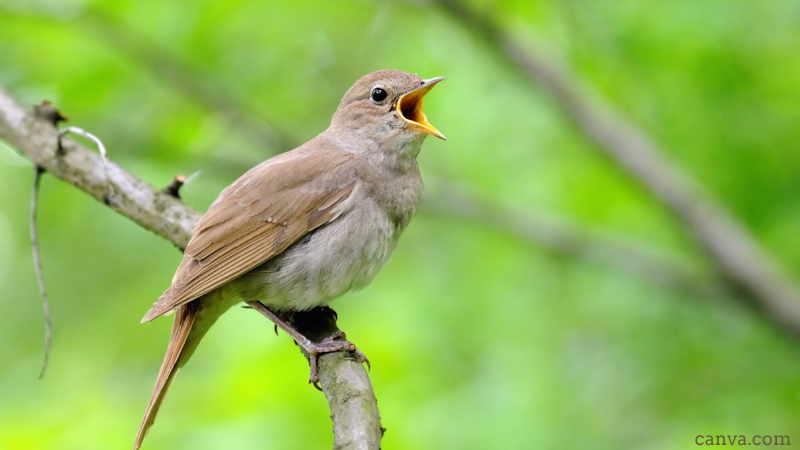40 scientific experts have come together today to release a paper on the role CAP plays in trying to make farming sustainable. Below we republish the summary of this paper, and provide a link to download the paper in full. Led by Guy Pe’er, and including our own Matteo Metta, the paper is critical of both the initial CAP proposal by the Commission from 2018, and more critical again of the positions taken by the Council and Parliament in October 2020. Important reading in the current trilogue context. Published 8.12.2020, DOI 10.5281/zenodo.4311314.
Summary
The European Union’s (EU) Common Agricultural Policy (CAP) still fails to address the environmental and socioeconomic challenges of EU’s agriculture. Agricultural ecosystems are further degrading, biodiversity is declining and agricultural Greenhouse Gas (GHG) emissions remain high. At the same time, farms are facing unresolved socio-economic challenges and rural areas struggle to remain viable. Knowledge, data, instruments and resources to address sustainability challenges are readily available. Missing is the CAP’s appropriate design as well as prioritization, and the indispensable political will to improve these.
While the Commission’s 2018 proposal fell short of addressing the key weaknesses of the CAP, the amendment proposals of October 2020 by the Council and the Parliament significantly weaken the CAP’s environmental instruments, while maintaining or even enhancing the inequitable and counterproductive distribution of payments. A weakened CAP puts both the environment and the future of farmers and farming at risk.
Scientific evidence shows that it is possible and efficient to align sustainable farming, multifunctional agroforestry and long-term prosperity with the climate and biodiversity goals of the EU. Farmers’ interests and environmental protection can be mutually reinforced and achieved through a CAP that is aligns with the EU’s Green Deal and Biodiversity Strategy, while also conforming to the Paris Agreement.
The proposed CAP post-2020 as it stands represents a business-as-usual model of agriculture against the viable alternative of a responsible and sustainable farm model that ensures the viability of rural communities. The narrative in support of this foundering approach, by stressing the importance of food production and the need to feed the world, is counteracted by a reality of more farmland taken for the production of fuel and feed for animals than for human consumption. The political positions also fail to represent the interests and needs of most farmers, who want to protect their living environment so in order to secure the long- term sustainability of their own farming – but rightly ask for public policy support. The CAP should provide better means to do so, and aim at a fair transition toward a sustainable future for farming.
The trilogue negotiations are a last opportunity to rethink the CAP post-2020 design and propose legal texts that allow, rather than impede, environmental and social ambition in line with the EU’s statement that the next CAP will be fairer and greener.
Using the time gained by the transition period of two years, we strongly recommend to Member States, the Council and the Parliament to rethink the current proposal. We specifically urge to:
- Maintain conditionality along the lines set by the Commission, and improve it by
- expanding permanent pasture protection beyond protected areas (Natura 2000) and
- maintaining or restoring at least 10% non-productive, semi-natural landscape features on all utilized agricultural area rather than only on arable land;
- Ring-fence budgets for Agri-Environment-Climate Measures and allow Member States to expand their budgets beyond current levels;
- Secure at least 30% of Pillar 1’s budget for Eco-schemes and use current knowledge to ensure Eco-schemes are well designed (i.e., include only effective measures for biodiversity), monitored and re-evaluated to achieve measurable environmental impacts;
- Place Areas of Nature Constraints in Pillar 1, or tie them strictly to environmental objectives and the protection of High Nature Value farmland regions, rather than unduly list them as an environmental instrument without substantive criteria;
- Cancel a) ring-fencing for direct payments (especially coupled payments), b) the barrier on Member States’ maximum investment in the environment, and c) the limitation for budget transfers to Pillar 2. These restrictions impede ambitious Member States from investing in rural areas and in public goods;
- Place a clear target for reducing, toward phasing out, of coupled payments (e.g. toward 5%) as subsidies that are harmful for both markets and the environment;
- If Direct Payments remain a political priority, and more equity among the recipients is the proposed means to address farmer’s concerns, then the Council and Parliament should make the Capping and Redistribution mechanism mandatory for all Member States, and set strict capping rules;
- Ensure the success of the new Delivery Model by means of a) linking Strategic Plans to the EU’s Green Deal, b) retaining the yearly reporting of Result indicators, and c) improving the integration of scientists and other experts in the consultation processes offered by Agricultural Knowledge and Innovation Systems (AKIS).
Science across all disciplines is available to address the agricultural sustainability challenge and improve the CAP. Over 3600 signatories have supported the call to improve the CAP. They underlined the feasibility of constructive changes and documented the readiness to assist in positively transforming and future-proofing the CAP and the EU’s agriculture (Pe’er et al. 2020).
Download the full paper: Pe’er et al 2020 Scientists Statement on the CAP
Authors
Guy Pe’er1,2,* Sebastian Lakner3, Ralf Seppelt4, Peter Bezák5, Aletta Bonn1,2,6, Elena D. Concepción7,8, Felix Creutzig9,10, Claus-Heinrich Daub11, Mario Díaz7, Petra Dieker12, Nico Eisenhauer1,13, Gregor Hagedorn14, Bernd Hansjürgens1,15, Gabriele Harrer-Puchner16, Irina Herzon17, Thomas Hickler18, Jens Jetzkowitz19,20, Yanka Kazakova21, Pavel Kindlmann22, Mathias Kirchner23, Alexandra-Maria Klein24, Sven Linow25, Ângela Lomba26, José Vicente López-Bao27, Matteo Metta28, Manuel B. Morales29, Francisco Moreira30, Anne-Christine Mupepele24, Alberto Navarro27, Rainer Oppermann31, Ilona Rac32, Norbert Röder33, Martina Schäfer34, Clelia Sirami35, Charlotte Streck36, Tanja Šumrada32, Katja Tielbörger37, Emil Underberg38, Georg Wagener-Lohse39, and Franz Baumann40.
* Corresponding author. Guy.peer@idiv.de ORCID 0000-0002-7090-0560
Author affiliations
1) German Centre for integrative Biodiversity Research (iDiv) Halle-Jena-Leipzig, Puschstraße 4, 04103 Leipzig
2) UFZ – Helmholtz Centre for Environmental Research, Dept Ecosystem Services, Permoserstraße 15, 04318 Leipzig, Germany, aletta.bonn@idiv.de, https://orcid.org/0000-0002-8345-4600
3) Universität Rostock, Justus-von-Liebig-Weg 2, 18059 Rostock, Germany, ORCID 0000-0002-5122-8924
4) UFZ – Helmholtz Centre for Environmental Research, Dept Computational Landscape Ecology, Permoserstraße 15, 04318 Leipzig, Germany. ralf.seppelt@ufz.de https://orcid.org/0000-0003-4772-1182
5) Institute of Landscape Ecology, Slovak Academy of Sciences, branch Nitra, Akademická 2, 94910, Nitra, Slovakia; peter.bezak@savba.sk, ORCID 0000-0001-8500-4518
6) Friedrich Schiller University Jena, Institute of Biodiversity, Dornburger Straße 159, 07743 Jena, Germany
7) Department of Biogeography and Global Change, Museo Nacional de Ciencias Naturales (BGC-MNCN-CSIC), c/Serrano 115bis, E-28006 Madrid, Spain; elenadconcepcion@gmail.com / orcid.org/0000-0002-6715-6902; Mario.Diaz@ccma.csic.es ORCID 0000-0002-6384-6674
8) Department of Biodiversity, Ecology and Evolution, Universidad Complutense de Madrid, Spain
9) Sustainability Economics of Human Settlements, Technische Universität Berlin, Straße des 17. Junis 135, 10623 Berlin, Germany, https://orcid.org/0000-0002-5710-3348
10) Mercator Research Institute on Global Commons and Climate Change, EUREF 19, Torgauer Straße 12-15, 10829 Berlin, Germany
11) Institute of Management, University of Applied Sciences and Arts Northwestern Switzerland, Bahnhofstr. 6, 5210 Windisch, Switzerland, clausheinrich.daub@fhnw.ch https://orcid.org/0000-0002-6235-9970
12) Thünen Institute of Biodiversity, Bundesallee 65, 38116 Braunschweig, Germany petra.dieker@thuenen.de, https://orcid.org/0000-0003-3468-4810
13) Leipzig University, Puschstraße 4, 04103 Leipzig, Germany nico.eisenhauer@idiv.de, https://orcid.org/0000- 0002-0371-6720
14) Scientists for Future, Berlin, Germany g.m.hagedorn@gmail.com, ORCID https://orcid.org/0000-0001-7023- 7386
15) UFZ – Helmholtz Centre for Environmental Research, Dept Economics, Permoserstraße 15, 04318 Leipzig, Germany, bernd.hansjuergens@ufz.de / https://orcid.org/0000-0002-5650-8300
16) System Logics T.T. GmbH, CH-9000 St.Gallen, Switzerland and Associated Fellow mobil.LAB Doctoral Research Group TUM, Technical University Munich, Germany. https://orcid.org/0000-0003-4939-295X gabriele.harrer@system-logics.com.
17) Department of Agricultural Sciences and HELSUS, P.O. Box 27, FI-00014 University of Helsinki, Finland, 0000- 0001-5758-4850
18) Senckenberg Biodiversity and Climate Research Centre, Senckenberganlage 25, 60325 Frankfurt am Main, Germany. thomas.hickler@senckenberg.de / https://orcid.org/0000-0002-4668-7552
19) Museum für Naturkunde Berlin, Biodiversity Policy Lab, Invalidenstraße 43, 10115 Berlin, Germany; jens.jetzkowitz@mfn.berlin / https://orcid.org/0000-0002-8524-6936
20) Helmut-Schmidt-Universität, Fakultät für Geistes- und Sozialwissenschaften, Holstenhofweg 85, 22043 Hamburg, Germany; jetzkowj@hsu-hh.de / https://orcid.org/0000-0002-8524-6936
21) Economics of Natural Resources Department, University of National and World Economy, Studentski Grad “Hristo Botev”, Sofia 1700, Bulgaria; y.kazakova@unwe.bg / ORCID 0000-0003-3406-9885
22) Department of Biodiversity Research, Global Change Research Institute, Brno, and Institute for Environmental Studies, Faculty of Science, Charles University, Prague, Czech Republic, ORCID 0000-0003-4772- 1182
23) Center for Global Change and Sustainability, University of Natural Resources and Life Sciences, Vienna, Dänenstraße 4, 1190 Vienna 24 Nature Conservation and Landscape Ecology, University of Freiburg, Tennenbacherstr. 4, 79106 Freiburg im Breisgau, Germany
24) Nature Conservation and Landscape Ecology, University of Freiburg, Tennenbacherstr. 4, 79106 Freiburg im Breisgau, Germany; alexandra.klein@nature.uni-freiburg.de / ORCID 0000-0003-2139-8575. anne- christine.mupepele@nature.uni-freiburg.de , ORCID 0000-0002-5671-0963
25) Hochschule Darmstadt, Schöfferstraße 3, 64295 Darmstadt, Germany sven.linow@h-da.de, ORCID 0000- 0001-8354-3710
26) CIBIO (Research Centre in Biodiversity and Genetic Resources)/InBIO – University of Porto, Campus Agrário de Vairão, 4485-661 Vairão, Portugal; angelalomba@fc.up.pt; https://orcid.org/0000-0003-3748-875127
27) Research Unit of Biodiversity (UO/CSIC/PA), Oviedo University, Spain. jv.lopezbao@gmail.com ; https://orcid.org/0000-0001-9213-998X; and navarroalb@gmail.com ; https://orcid.org/0000-0002-9396- 0339
28) University of Pisa, Via Lungarno Antonio Pacinotti, 43, 56126 Pisa PI, Italia https://orcid.org/0000-0001- 5113-2423
29) Departamento de Ecología and Centro de Investigación en Biodiversidad y Cambio Global (CIBC-UAM). Autónoma University of Madrid. 28049 Madrid, Spain; manuel.morales@uam.es https://orcid.org/0000-0001- 8534-7895
30) CIBIO/InBIO – University of Porto, Campus Agrário de Vairão, 4485-661 Vairão, Portugal; CIBIO/InBIO, Instituto Superior de Agronomia, Universidade de Lisboa, Tapada da Ajuda, 1349-017 Lisboa, Portugal. fmoreira@cibio.up.pt; http://orcid.org/0000-0003-4393-8018
31) Institute for Agro-ecology and Biodiversity (IFAB), Böcklinstr. 27, D-68163 Mannheim, Germany; oppermann@ifab-mannheim.de; https://orcid.org/0000-0002-7253-1199
32) University of Ljubljana, Biotechnical faculty, Jamnikarjeva ulica 101, SI-1000 Ljubljana, Slovenia. tanja.sumrada@bf.uni-lj.si, https://orcid.org/0000-0003-1297-9108; ilona.rac@bf.uni-lj.si, https://orcid.org/0000-0003-4344-267X.
33) Thünen Institute of Rural studies, Bundesallee 64, 38116 Braunschweig, Germany. norbert.roeder@thuenen.de, ORCID 0000-0002-2491-2624.
34) Zentrum Technik und Gesellschaft (Center for Technology and Society, ZTG), Technische Universität Berlin, Germany. schaefer@ztg.tu-berlin.de ORCID 0000-0003-2240-6928
35) Université de Toulouse, INRAE, UMR DYNAFOR, Castanet-Tolosan, France clelia.sirami@inrae.fr; https://orcid.org/0000-0003-1741-3082
36) University of Potsdam, Am Neuen Palais 10, 14469 Potsdam
37) Plant Ecology Group, University of Tübingen, Auf der Morgenstelle 5, 72076 Tübingen
38) Ökozucht Buckow, Kalkarer Str. 4, D-46509 Xanten, Germany. Emil.Underberg@centrum.cz; https://orcid.org/0000-0003-4003-315X
39) Fördergemeinschaft für Erneuerbare Energien, FEE e.V., Berlin, Germany georg.wagener-lohse@fee- ev.de ORCID 0000-0003-1729-8248
40) New York University, Graduate School of Arts and Science, Program in International Relations, New York, USA franz.baumann@nyu.edu ORCID 0000-0001-9378-5414
More Readings on ARC2020 on CAP
Withdraw the CAP to Safeguard European Green Deal – 27 Organisations
PAN Europe Reveals: Member States Act Against EU Pesticide Reduction
Council and Parliament on CAP
Eco-Scheming | Council Adopts a CAP Position of no Ecological Substance
A Rural Proofed CAP post 2020? – Analysis of the European Parliament’s Position
Billions for CAP as an “extinction machine” – Farm to Fork Derailed
European Court of Auditors on CAP
CAP | Time for Commission to Get Real on Spending, Say Auditors
CAP | Billions Spent on Biodiversity with Little Impact – Auditors
ARC Exclusive – Auditors Heavily Criticise Commission’s CAP Plans






2 Trackbacks / Pingbacks
Comments are closed.